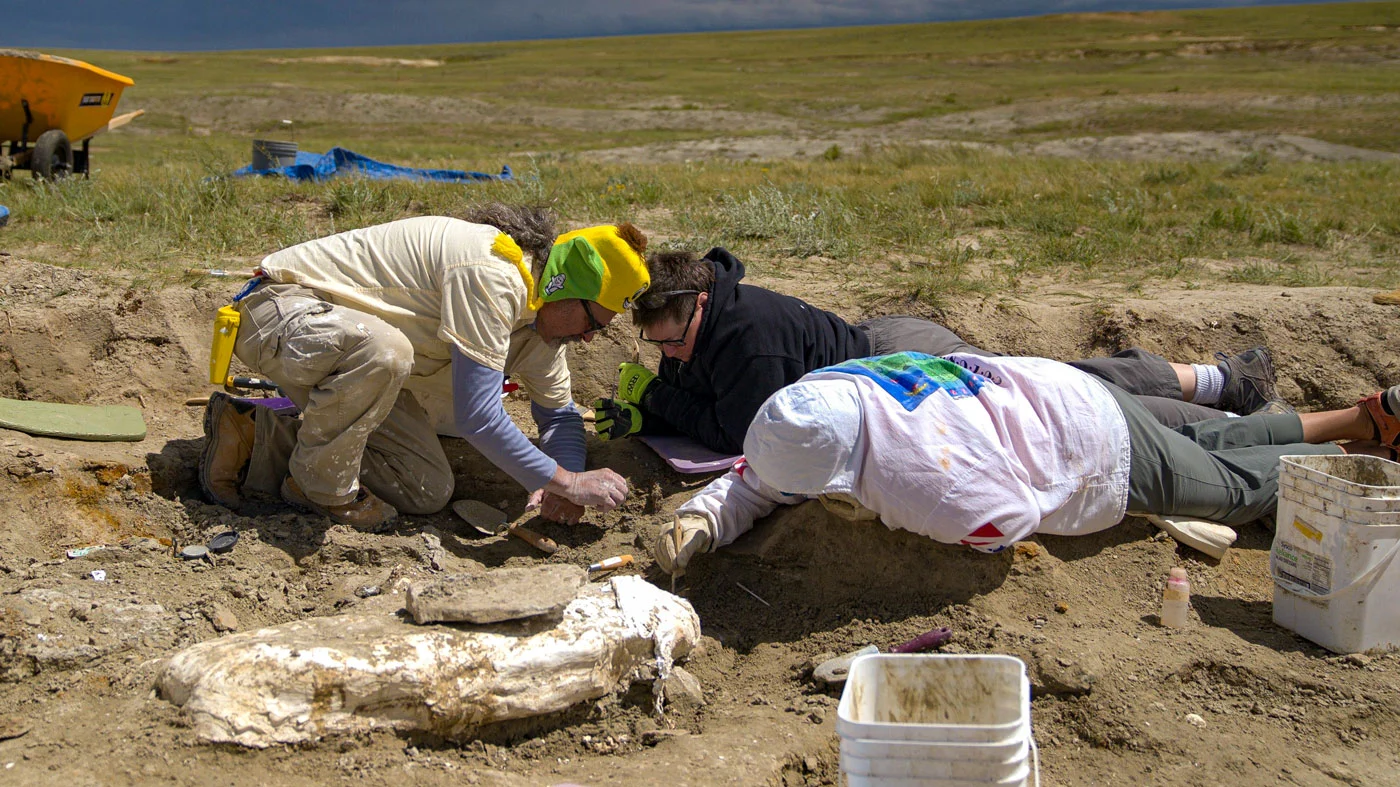
Paleontology is a captivating field that allows us to unravel the mysteries of our planet’s past. Paleontologists dedicate their lives to studying ancient life forms and the evolution of the Earth itself. They tirelessly dig through fossils, analyze bones, and piece together the puzzle of what existed millions of years ago. In this article, we will explore 12 fascinating facts about paleontologists and the incredible work they do. From their pioneering discoveries to their adventurous expeditions, these scientists play a crucial role in expanding our understanding of prehistoric life. So, let’s dive into the world of these intrepid explorers of the past and uncover some intriguing insights about paleontologists!
Key Takeaways:
- Paleontologists study fossils to learn about ancient life forms, like detectives of the past, and their work helps us understand how species evolved over time.
- Paleontologists make groundbreaking discoveries, inspire future scientists, and contribute to our understanding of Earth’s past and future, shaping our actions to preserve our planet.
Paleontologists study fossils to understand prehistoric life forms.
Paleontologists dedicate their lives to unraveling the secrets of the past through the examination of fossils. These preserved remnants from ancient organisms provide valuable clues about the diverse flora and fauna that inhabited the Earth millions of years ago.
Paleontologists can specialize in different areas.
Just like doctors have specialties, paleontologists can focus their research on specific fields within paleontology. Some may specialize in vertebrates, studying the fossils of dinosaurs and other ancient creatures, while others may explore marine life, plants, or even microorganisms.
Paleontologists use a variety of tools and techniques.
From delicate brushes to carefully extract fossils from rock formations to advanced imaging technologies like CT scans, paleontologists employ an array of tools and techniques to study and analyze fossils. These methods help reveal intricate details about ancient organisms and their environments.
Paleontologists work in different settings.
While the image of a paleontologist might conjure up scenes of them digging in remote locations, these scientists can also be found in laboratories, museums, and universities. They may conduct fieldwork, analyze specimens, or even teach the next generation of aspiring paleontologists.
Paleontologists play a vital role in reconstructing evolutionary history.
By studying fossils, paleontologists contribute to our understanding of how species evolved over time. Their work helps piece together the intricate puzzle of life’s history, filling in gaps and providing crucial insights into the development of different organisms.
Paleontologists are like detectives of the past.
Similar to crime scene investigators, paleontologists carefully examine evidence left behind in the form of fossils. Through meticulous analysis, they can reconstruct ancient ecosystems, decipher behaviors, and even determine the cause of extinction events.
Paleontologists regularly collaborate with other scientists.
Paleontology is a multidisciplinary field, requiring expertise from various scientific disciplines. Paleontologists often work with geologists, biologists, chemists, and other specialists to interpret fossil data, analyze geological formations, and conduct experiments.
Paleontologists engage in fieldwork around the globe.
Whether it’s searching for fossils in the deserts of Africa, excavating ancient seabeds, or exploring remote mountains, paleontologists embark on adventures to gather important fossil specimens. Their work takes them to diverse locations across the globe.
Paleontologists aid in conservation efforts.
By studying past ecosystems, paleontologists gain insight into the effects of environmental change on living organisms. This knowledge contributes to the conservation and preservation of present-day species and helps us better understand the potential consequences of ongoing environmental challenges.
Paleontologists continue to make groundbreaking discoveries.
From the unearthing of new dinosaur species to the identification of ancient ecosystems, paleontologists constantly push the boundaries of scientific knowledge. Their discoveries captivate the world, shedding light on the wonders of our planet’s history.
Paleontologists inspire future generations.
Through their passion and dedication, paleontologists inspire curiosity in young minds, igniting a love for science and the natural world. They play a pivotal role in shaping the scientists of tomorrow, nurturing an appreciation for our planet’s rich geological and biological past.
Paleontologists contribute to our understanding of Earth’s future.
By studying the past, paleontologists provide valuable insights that can inform our present actions and shape our future. Their research helps us comprehend the impact of environmental changes on ecosystems and aids in making informed decisions to preserve our planet for generations to come.
Conclusion
In conclusion, paleontologists are truly fascinating individuals who play a vital role in unraveling the mysteries of our planet’s ancient past. Their unwavering curiosity, dedication, and expertise allow us to learn more about prehistoric creatures and the history of life on Earth. From their rigorous scientific research to their exciting discoveries, paleontologists are instrumental in shaping our understanding of evolution and the natural world.
Whether they’re digging up dinosaur fossils, studying ancient ecosystems, or identifying new species, paleontologists are constantly pushing boundaries and expanding our knowledge. Their work not only fuels our imagination but also provides valuable insights into the Earth’s geological history and the intricate web of life that has existed for millions of years.
As we continue to explore and uncover the secrets of the past, paleontologists remain at the forefront of scientific discovery. Their passion for understanding the history of our planet brings us closer to unraveling the mysteries of our ancient world.
FAQs
Q: What is a paleontologist?
A: A paleontologist is a scientist who studies and examines fossils to understand the history of life on Earth.
Q: What kind of education is required to become a paleontologist?
A: Most paleontologists have a background in geology, biology, or a related field. A bachelor’s degree is typically required, followed by a master’s or Ph.D. for advanced research positions.
Q: Where do paleontologists work?
A: Paleontologists work in a variety of settings, including museums, universities, research institutions, and even out in the field conducting excavations.
Q: Do paleontologists only study dinosaurs?
A: While dinosaurs are a popular focus of paleontological research, paleontologists study a wide range of extinct organisms, including plants, mammals, reptiles, and marine life.
Q: How do paleontologists determine the age of fossils?
A: Paleontologists use a variety of methods, including radiometric dating, fossil correlation, and stratigraphy, to determine the relative and absolute ages of fossils.
Q: Can anyone become a paleontologist?
A: With the right education, training, and passion for the subject, anyone can pursue a career in paleontology. However, it requires dedication, perseverance, and a strong scientific background to succeed in this field.
Paleontology enthusiasts, your curiosity doesn't have to end here! Dig deeper into the captivating world of ancient life with our other articles. Unearth the fundamentals of paleontology and its intriguing facts. Meet the fearsome Carcharodontosaurus, a colossal predator that once roamed the Earth. Discover the awe-inspiring Supersaurus, one of the largest dinosaurs ever to walk the planet. Continue your exploration of the prehistoric world and expand your knowledge of these magnificent creatures that lived millions of years ago. Join us on this thrilling journey through time and unlock the secrets of the past!
Was this page helpful?
Our commitment to delivering trustworthy and engaging content is at the heart of what we do. Each fact on our site is contributed by real users like you, bringing a wealth of diverse insights and information. To ensure the highest standards of accuracy and reliability, our dedicated editors meticulously review each submission. This process guarantees that the facts we share are not only fascinating but also credible. Trust in our commitment to quality and authenticity as you explore and learn with us.


